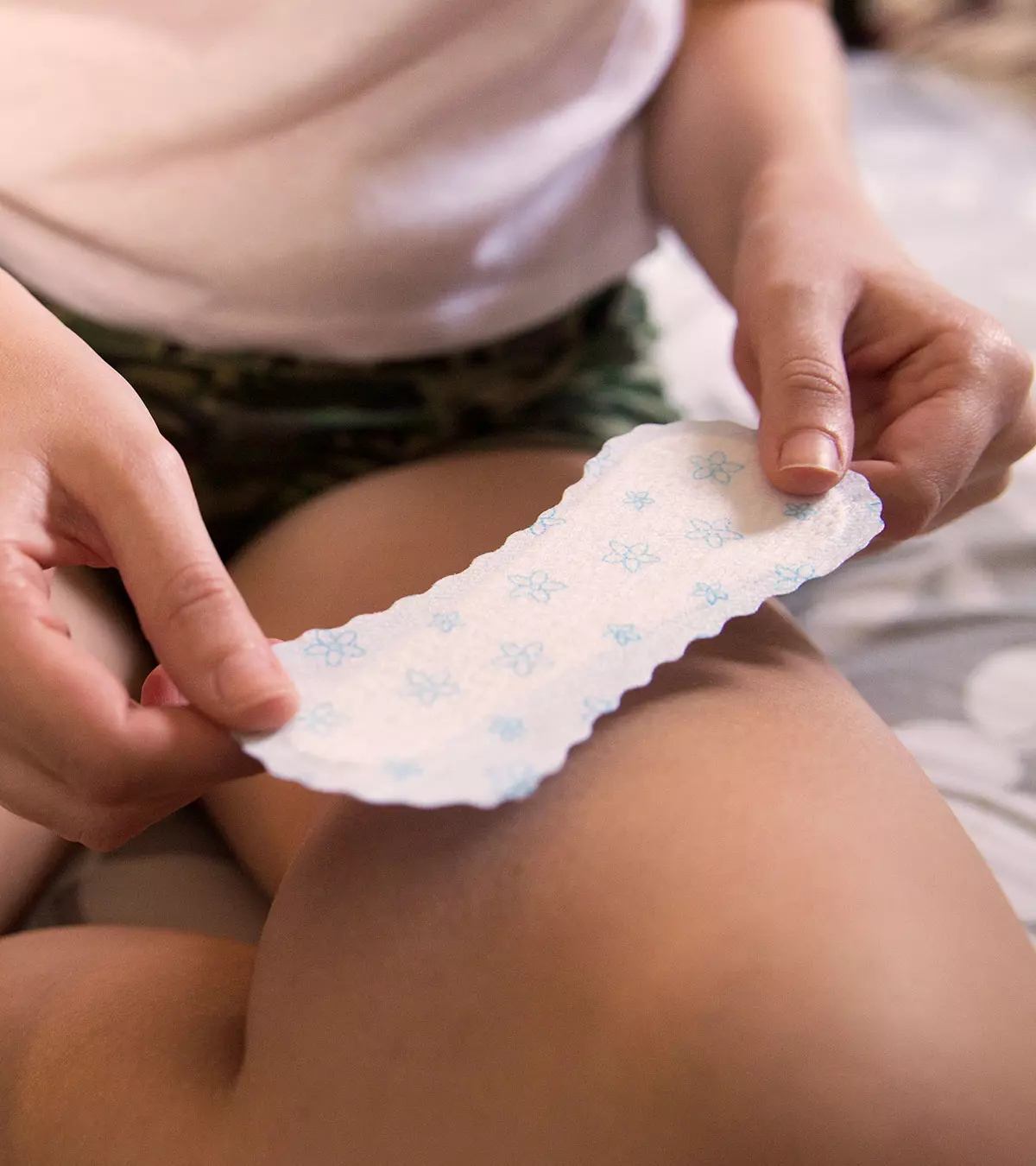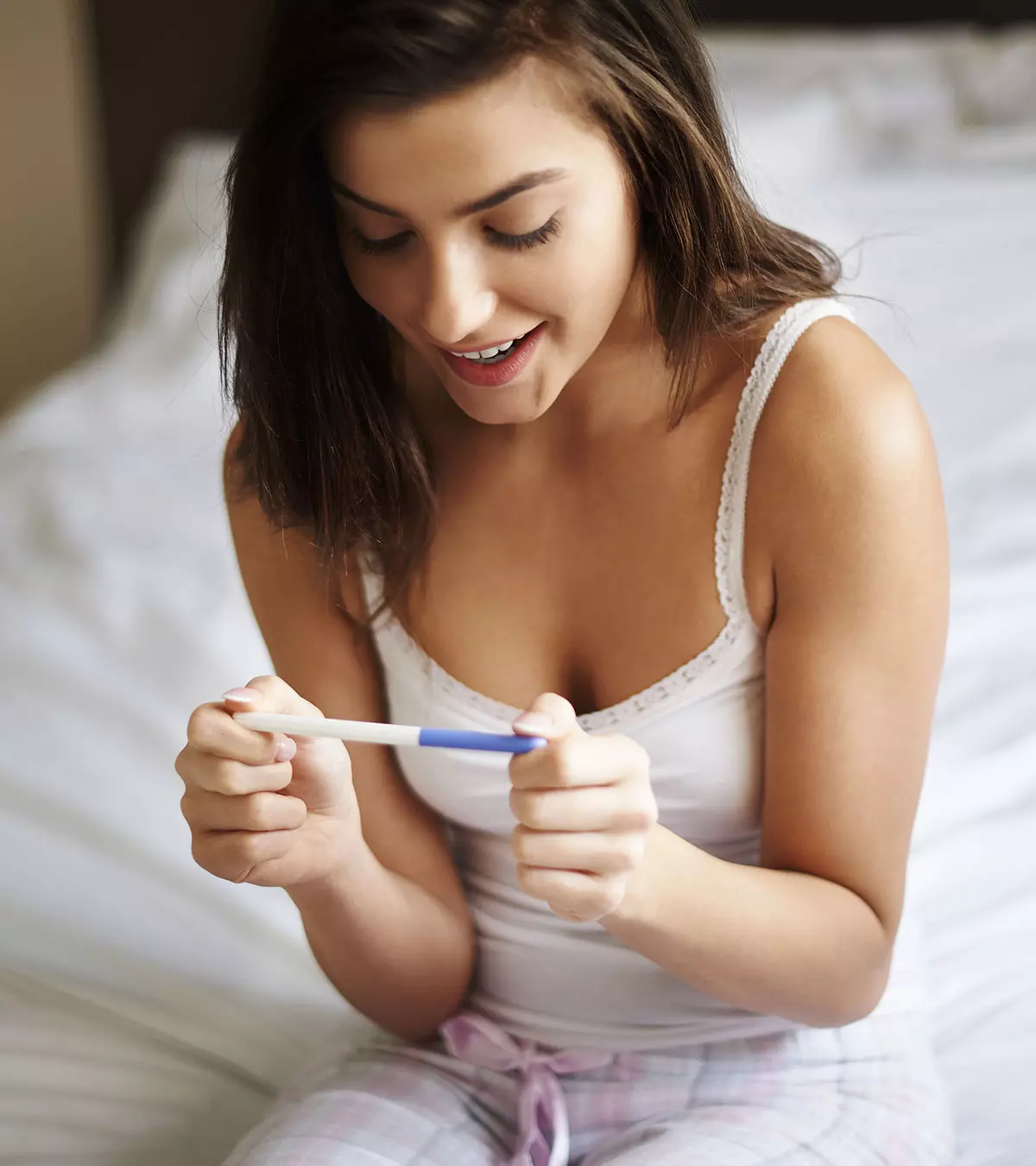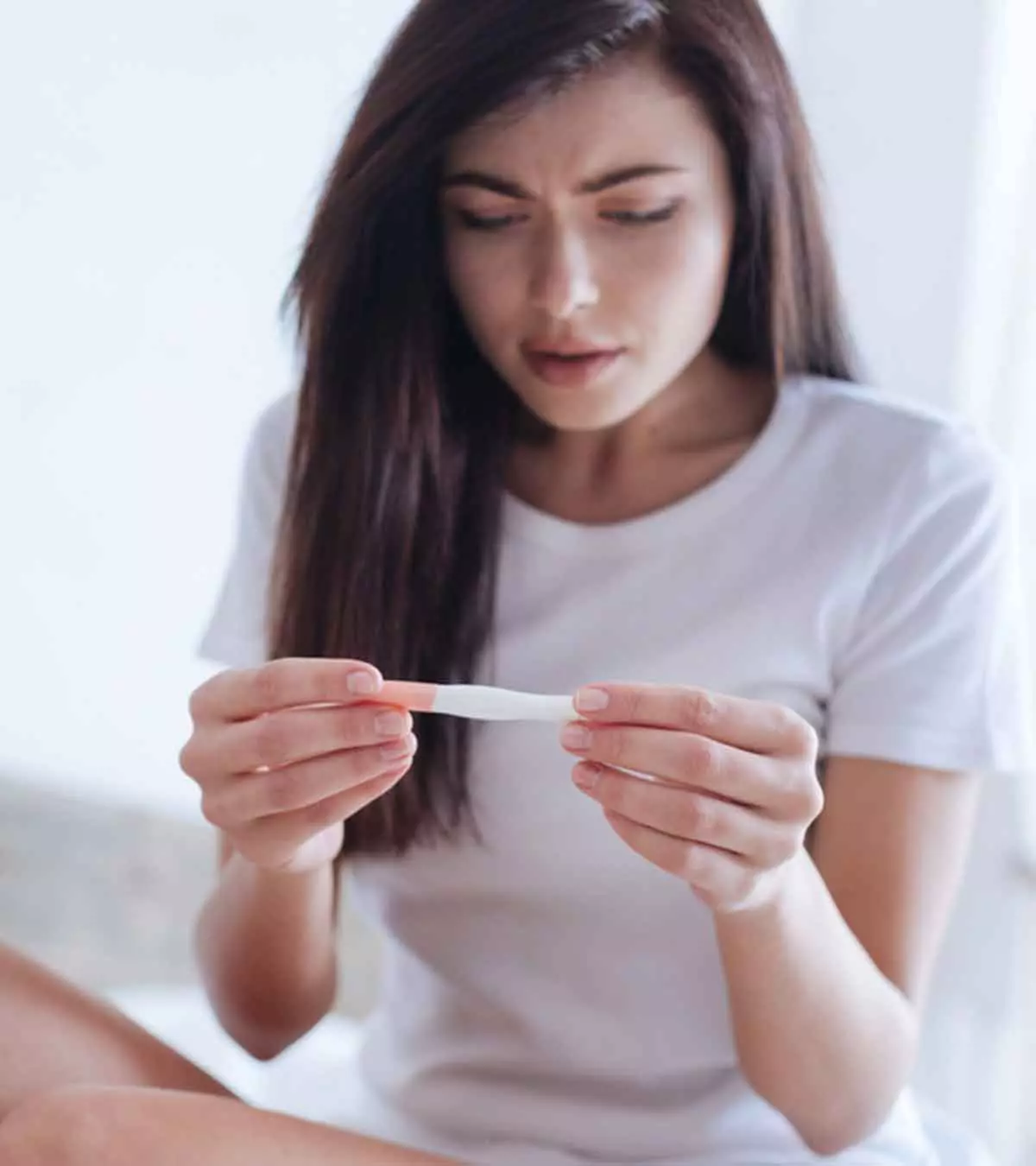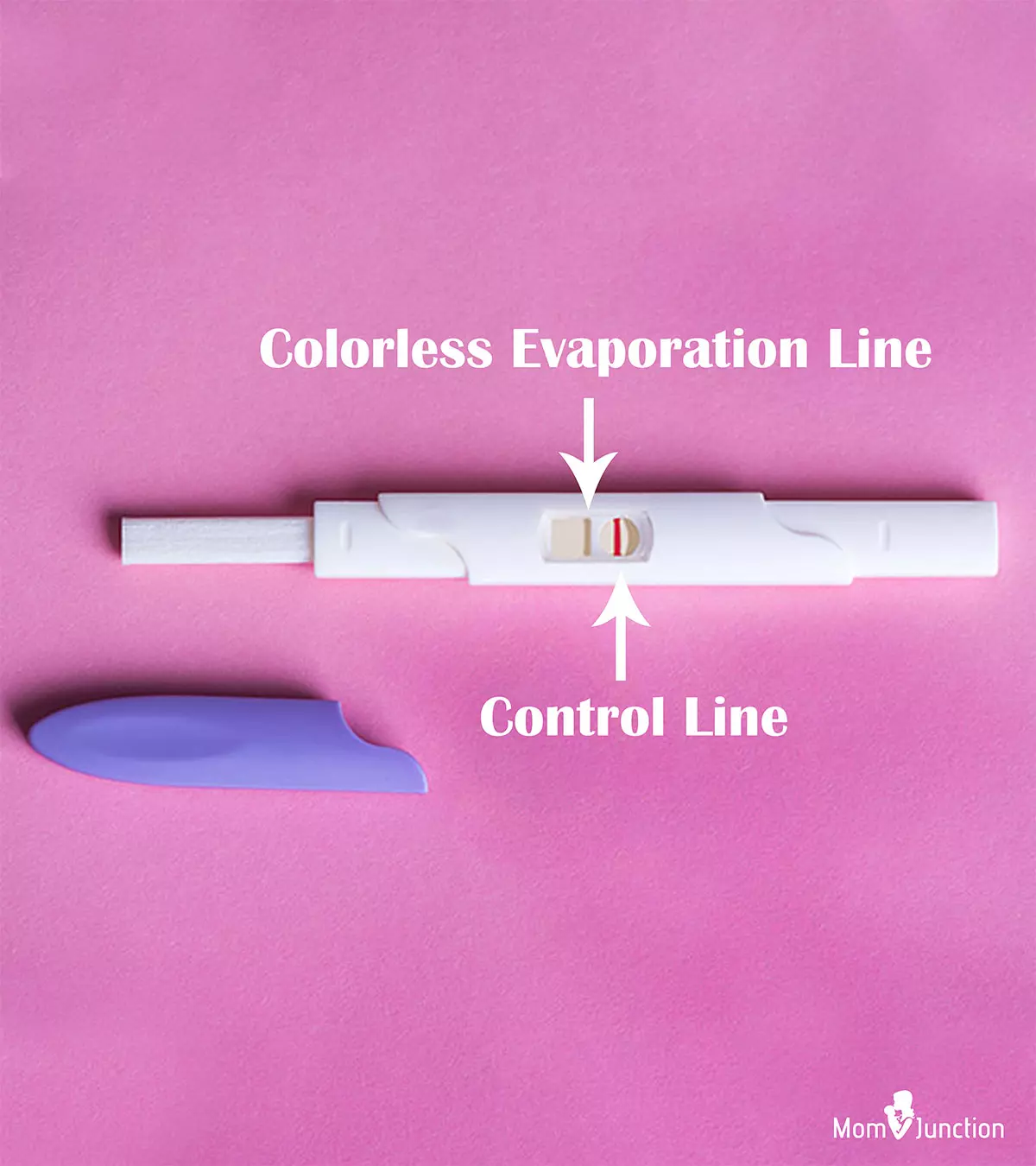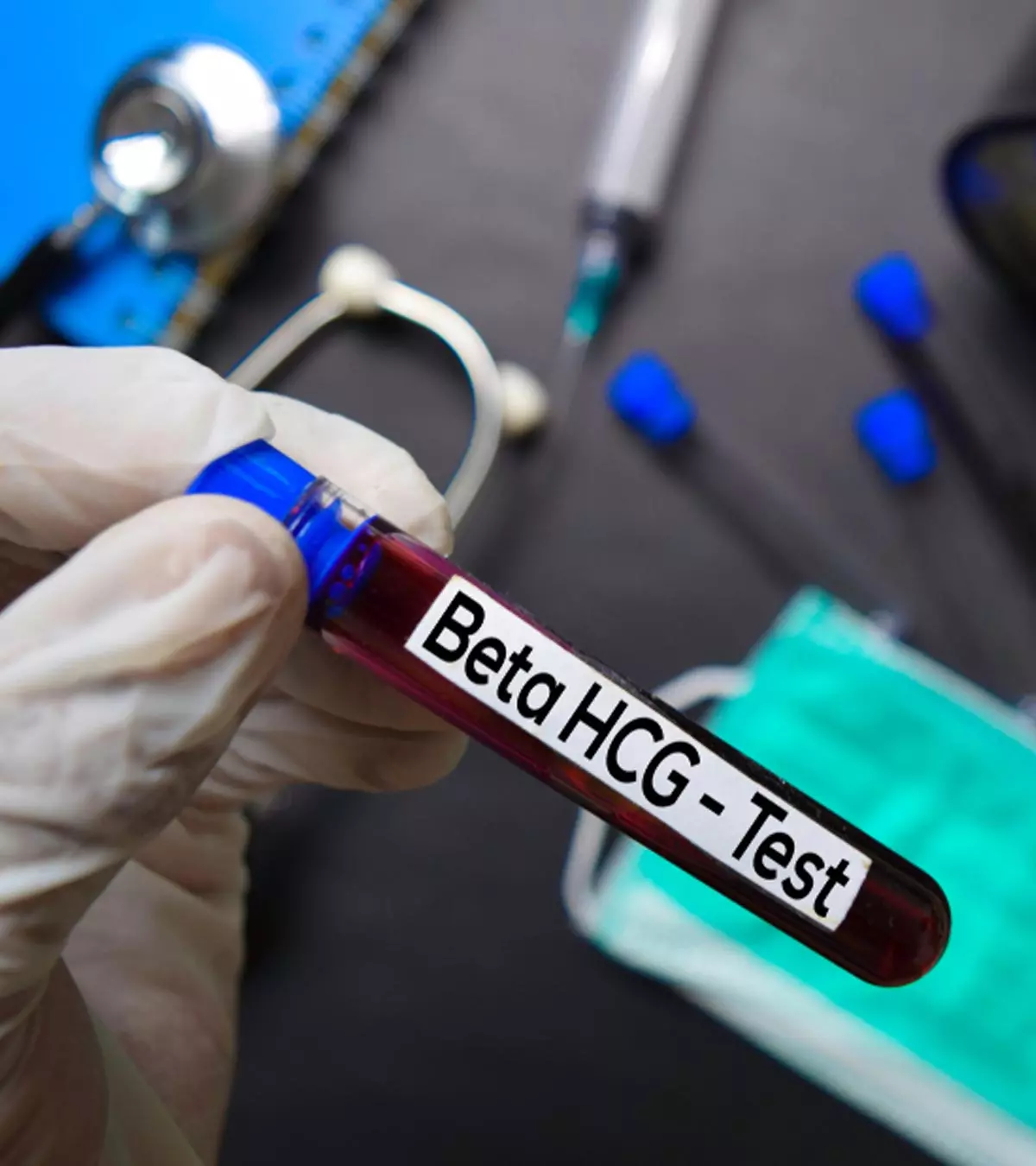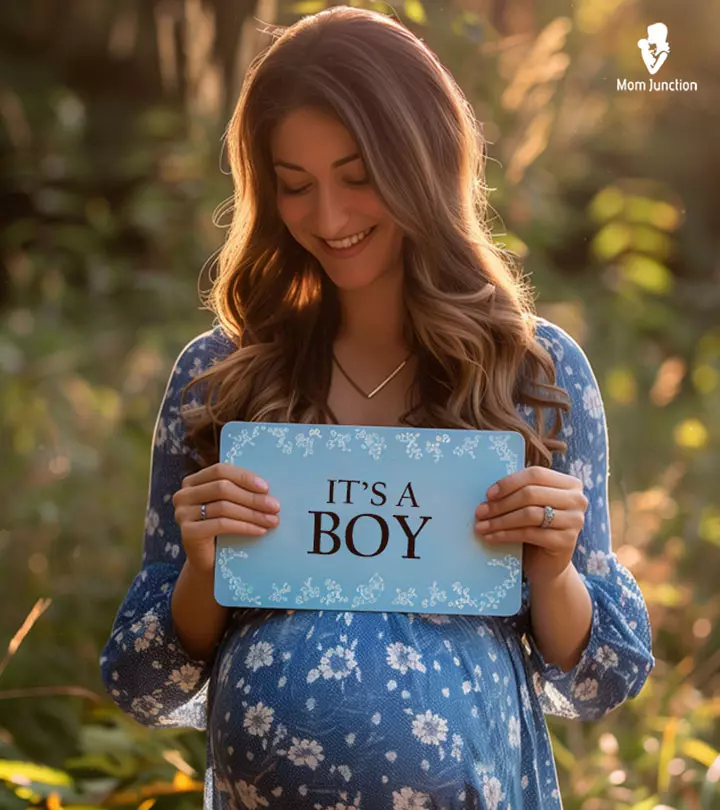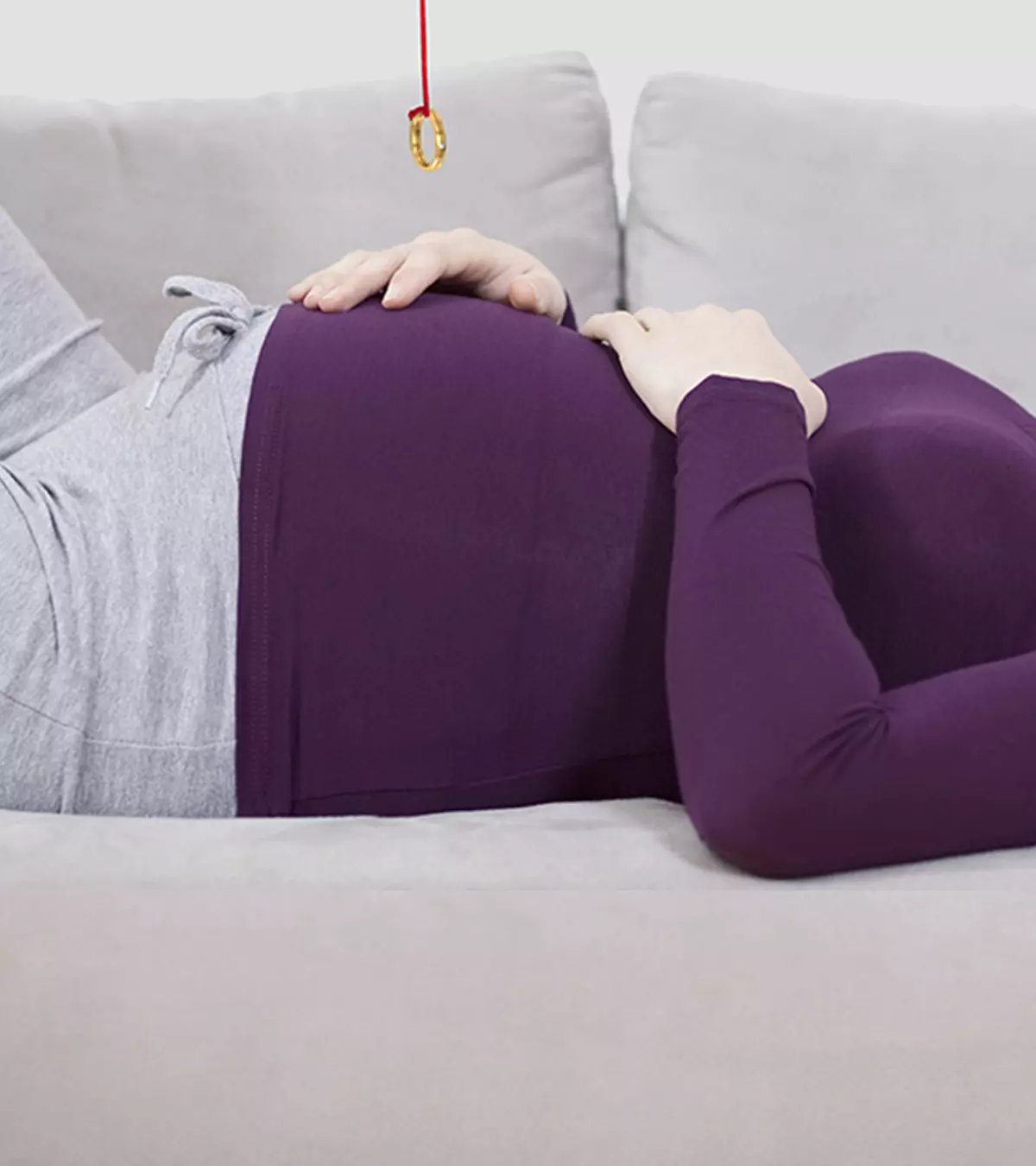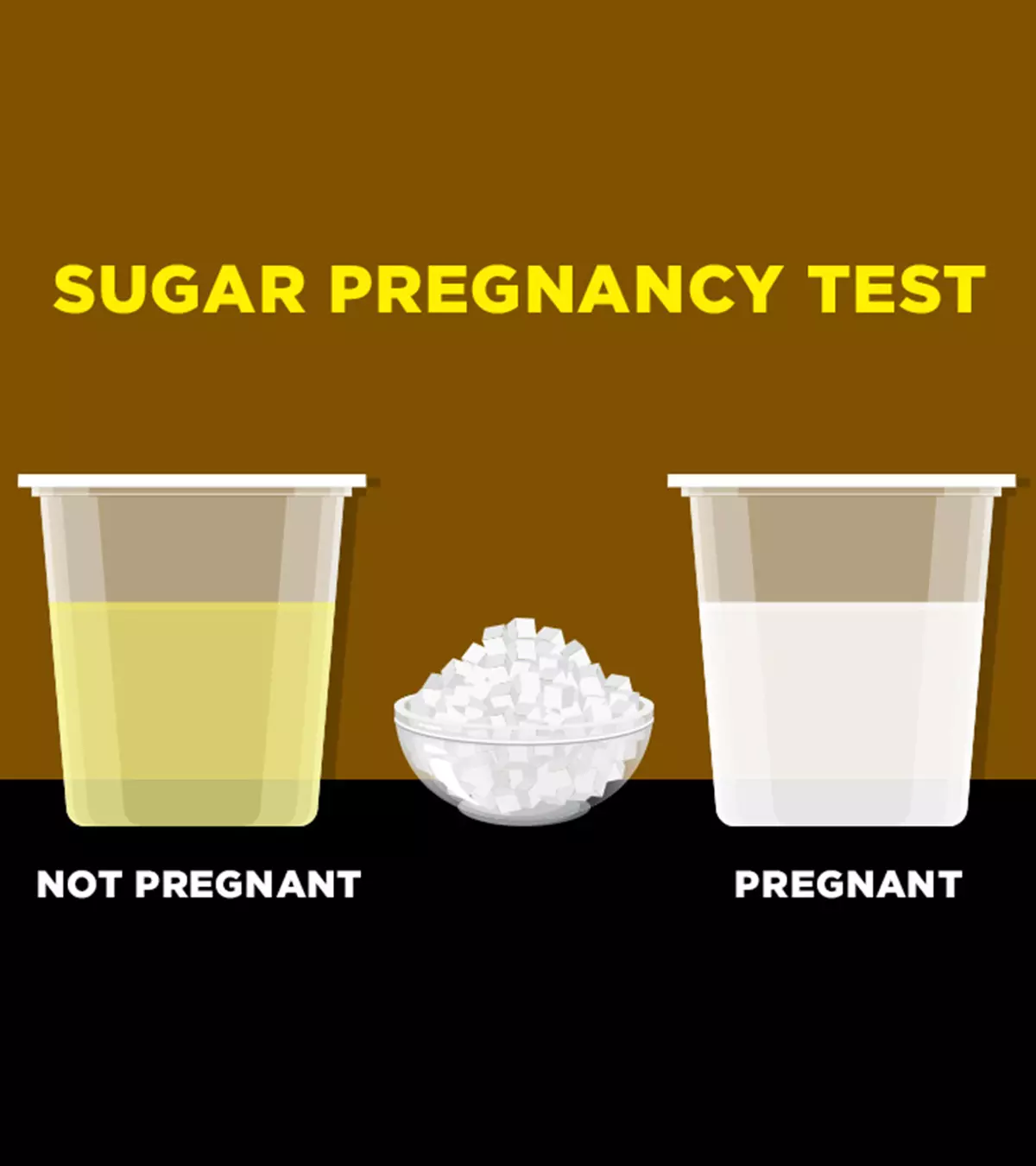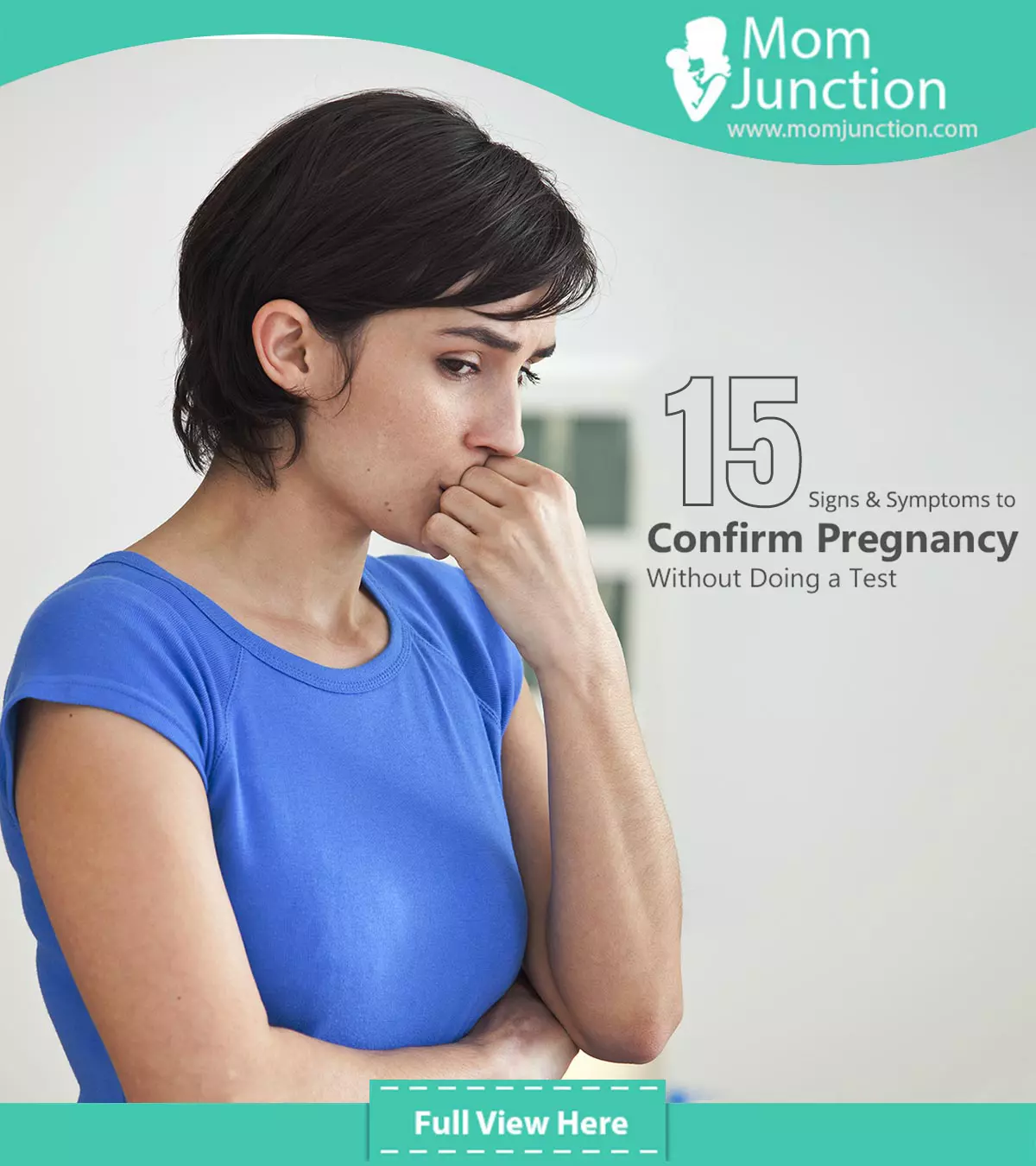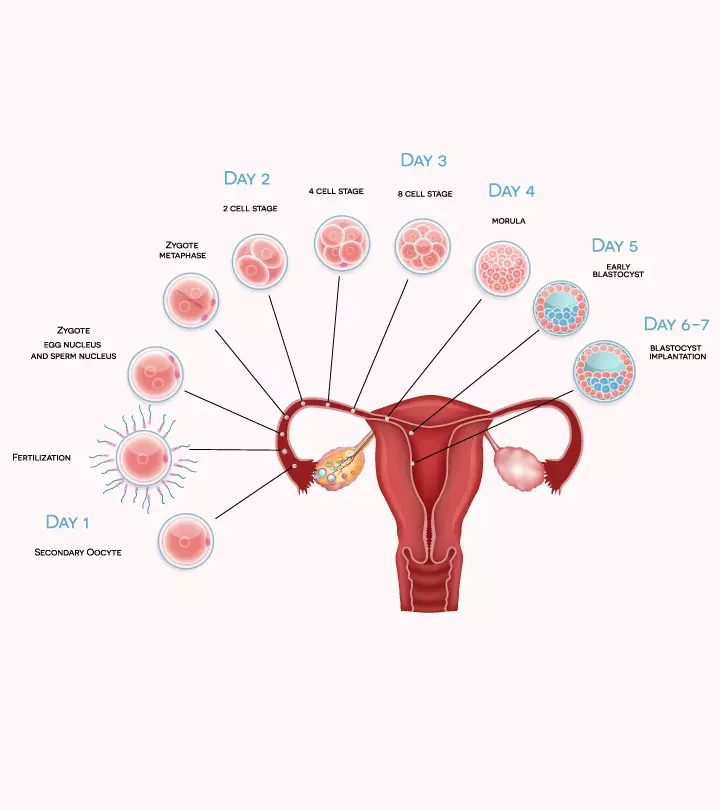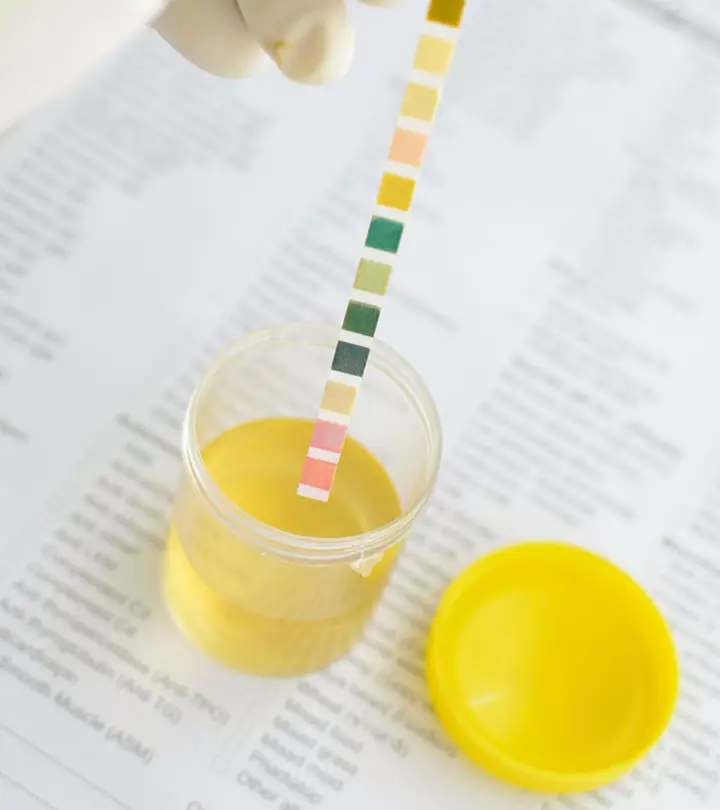
Image: ShutterStock
A delayed or missed period may make one wonder if they are pregnant. Some couples may consider having a home pregnancy test, such as a bleach home pregnancy test. You may consider such DIY pregnancy tests either as as a preliminary test or because you have no access to home pregnancy test kits immediately. But is the test accurate?

Read this post to learn about the bleach pregnancy test, its accuracy, procedure, and the necessary precautions to take while performing it.
Key Pointers
- A bleach pregnancy test is a simple and effective home-based method of determining whether or not you are pregnant.
- No-ammonia household bleach, two cups, and your urine sample are all you need for a bleach pregnancy test.
- But, the accuracy of a bleach pregnancy test is not reliable.
- Drinking too much fluid or water before taking the test can hamper results.
- If you’re undergoing fertility treatments, a bleach pregnancy test might result in a false positive.
What Is A Bleach Pregnancy Test?
A bleach test is a traditional, convenient, and inexpensive method to determine whether or not you are pregnant.
If you are shy about buying a pregnancy kit from the pharmacy or you do not wish to visit a clinic, this homemade pregnancy test can be a handy option for you.
Is The Bleach Pregnancy Test Accurate?
There are no scientific studies to support bleach pregnancy test accuracy. It cannot be said that the bleach pregnancy test is 100% accurate and should not be relied upon for pregnancy confirmation. However, it might give you the correct result if you try it around five to ten days after you miss a period when the hCG levels can be detected in the urine (1). If your result is negative and you still haven’t got your period, you can try the test again.
Read on to know the science behind this home-based pregnancy test.
How Does It Work?
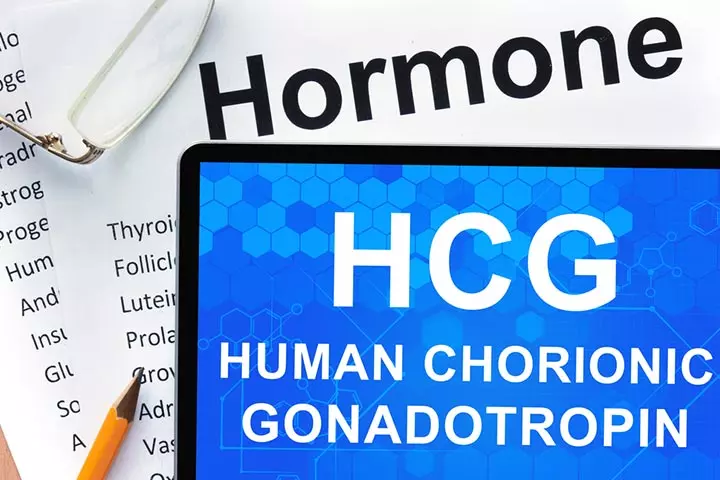
Image: Shutterstock
Once the embryo is planted in the uterus, the placenta produces a hormone called hCG or human chorionic gonadotropin. This hormone is found in the urine of pregnant women. Hence, the presence of this hormone is considered to be a sign of pregnancy confirmation (2).
When hCG in the urine and bleach (sodium hypochlorite) are mixed, froth or bubbles are formed indicating that you are pregnant. If there is no chemical reaction when the urine comes into contact with bleach, it suggests the absence of hCG, which means you are not pregnant. The type or quality of bleach you use may also influence the results of this test.
 Point to consider
Point to considerWhich Bleach To Use For This Test?
You can use the standard bleach that you use for cleaning or other purposes at home. Do not use industrial-grade bleach or colored and scented bleach as these may have certain chemicals that could tamper the results.
Safety precautions: Avoid using bleach with ammonia, and avoid any direct contact of bleach with skin or eyes, as it can cause irritation and burning.
The Bleach Pregnancy Test Procedure
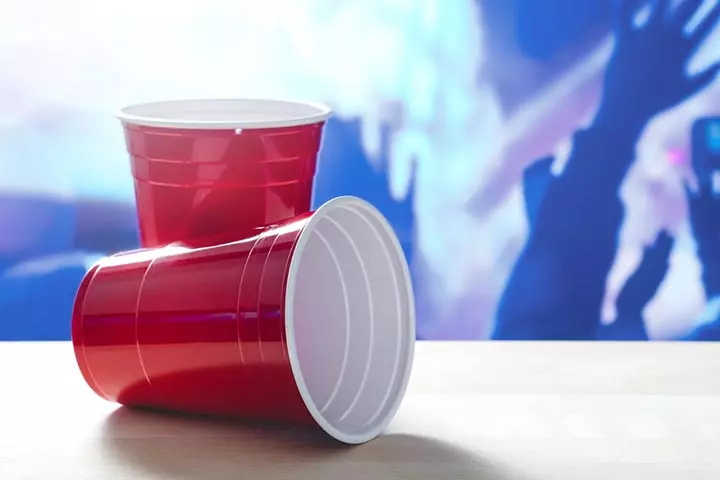
Image: Shutterstock
You would require:
- Household bleach with no ammonia
- Two cups for the test, mark them as cup A and cup B
- A sample of midstream urine (fresh)
Follow these step-by-step pregnancy test instructions:
Step 1: Take a fresh urine sample in cup A. Fill 1/4th of the cup, ideally by urinating directly into the cup.
Step 2: Add bleach in cup B, about 1/4th of the cup. Make sure you are using a disposable spoon to add the bleach and not reusable cutlery used for eating, as bleach is toxic and may remain on the spoon even after washing.
Step 3: Pour bleach from cup B into the cup that has urine. See that you are doing it slowly while giving time for the mixture to react
Step 4: Wait for a few minutes to observe the urine and bleach reaction.
Frothing urine could indicate a positive pregnancy result.
Interpreting Bleach Pregnancy Test Results
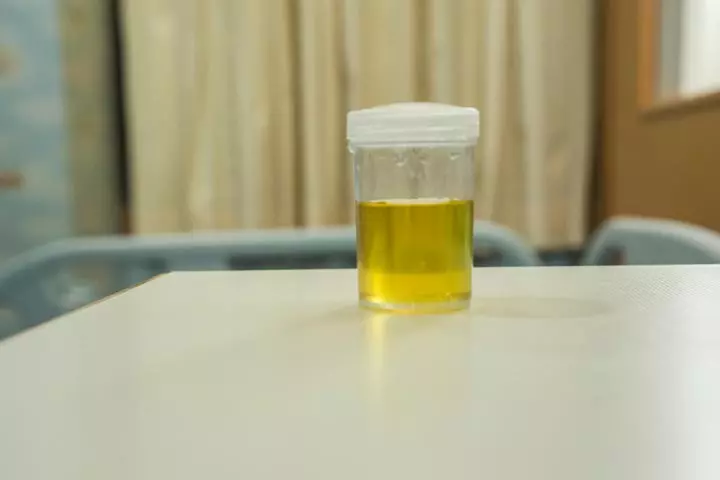
Image: Shutterstock
Positive bleach pregnancy test: If you find any fizz or froth in the reaction, it could be indicative of a positive result.
Negative bleach pregnancy test: If there is no reaction, it is negative and you are not pregnant.
Besides being simple to take, this test is also popular for other reasons. Find out what makes this test ideal for women.
Why Is The Bleach Pregnancy Test So Popular?
The bleach pregnancy test is preferred by many because it is:
- Cost-effective: There is no doubt that the pregnancy test with bleach is affordable, considering that you are using household items that are readily available at home.
- Quick results: This is also one of the top reasons why many women perform a bleach test. You do not have to go anywhere or wait for hours to get the results. All you have to do is take the test, and your result will appear right then and there.
- Convenient: There are no hassles of buying a pregnancy kit or driving to the clinic. No pregnancy test can be more convenient than this.
However, a lot of you may be thinking about its safety.
Is Bleach Pregnancy Test A Safe Option?
Yes, provided you are doing it with caution. The bleach pregnancy test is a simple method to know whether you are pregnant or not. However, it is essential to be careful while performing the test as it might release some fumes.
What Precautions To Take During The Bleach Pregnancy Test?
Here are a few precautions you need to follow when doing a pregnancy test at home using bleach:
- Do not drink too much water or other fluids before taking the test as the hCG levels in the urine can be diluted with excess fluids.
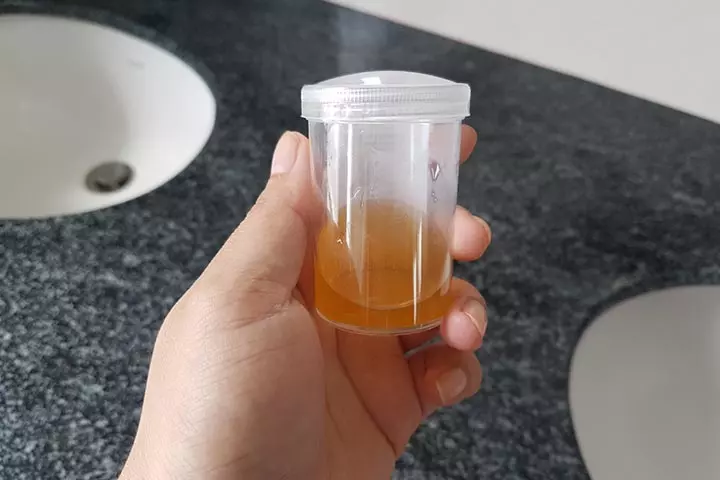
Image: Shutterstock
- It is easy to detect the hCG levels either in the early morning urine or in the urine which has been in the bladder for about 4 hours (1).
- Make sure you are performing the test as instructed only.
- Always perform the test in a well-ventilated area to reduce exposure to bleach fumes.
 Caution
CautionFrequently Asked Questions
1. Can taking health supplements lead to a false result?
No, because the supplements that may have hCG are not legally available in the market. So there is no chance of any supplements interfering with the hCG levels in the urine, to give a false result (3).
2. Can the bleach pregnancy test give a false positive?
A false positive home pregnancy test result is possible with the bleach pregnancy test. It might happen if you are taking any medications prescribed under fertility treatments. These medications contain hCG, which when mixed with urine may cause bubbles or fizz thus giving a false positive in result (4).
3. What are the alternatives to the bleach pregnancy test?
Dr. Laura Purdy, a US-based board-certified family medicine physician, says, “The bleach pregnancy test has not been proven to be accurate. The thought behind this test is that if bleach and the urine of a pregnant woman are mixed, it becomes foamy. However, this is not accurate, and it hasn’t been studied or validated to assess pregnancy. The best alternative would be over-the-counter, urine test strips, which you can buy in bulk online. You can also have a blood test or urine test done at your doctor’s office or in a lab to confirm the presence of a pregnancy.”
4. Are there any alternative, safer methods of determining pregnancy?
Over-the-counter home pregnancy kits and blood tests are safe and economical alternative pregnancy tests. The blood tests have a higher pregnancy test sensitivity and are very accurate as they can detect even minute quantities of hCG (6).
5. Are there any risks associated with exposure to bleach during pregnancy?
Chemicals such as bleach are toxic and may have a negative impact on the health of the mother and baby. Bleach is considered a teratogen and may cause birth defects in babies. Direct and prolonged exposure to the potentially harmful chemical should be avoided during pregnancy (8).
6. How does the bleach pregnancy test compare to over-the-counter pregnancy tests?
A bleach pregnancy test uses froth formation when mixed with urine to indicate pregnancy detection. In contrast, over-the-counter pregnancy testing methods use antibodies to detect the presence of hCG. Hence, these tests have higher validity, accuracy, safety, and convenience (6).
7. What do medical professionals recommend as the best method for determining pregnancy?
Medical professionals recommend a blood test that detects hCG levels in your blood to confirm pregnancy. The other method they may suggest is ultrasound scanning (9).
The bleach pregnancy test is a simple and conveniently good option if you don’t want to go to the hospital or are too embarrassed to buy a pregnancy kit. However, the timing of the test must be precise enough to detect hCG in urine; otherwise, false-negative findings may ensue. Similarly, the type or quality of bleach you use in the test may impact the test’s results. Therefore, despite the test result, if you believe you’re showing indications of early pregnancy or missed periods after unprotected sex, you may consult a doctor to confirm.
Infographic: Unfavorable Consequences Of Bleach Test And Preventive Methods
Homemade tests could sound like exciting ways to confirm pregnancy, but experimenting with the chemicals may sometimes cause more harm than good. So, check out this infographic to learn the possible risks of a bleach pregnancy test and what you can do to avoid them. Illustration: Momjunction Design Team

Are you curious about whether bleach can be used as a DIY pregnancy test? Watch this video to find out!
References
1. Your Guide to Pregnancy Tests; Cleveland Clinic (2017)
2. Human Chorionic Gonadotropin (HCG); Michigan Medicine: University of Michigan (2018)
3. HCG Diet Products Are Illegal; U.S. Food & Drug Administration (2018)
4. HCG (Blood): Health Encyclopedia; University of Rochester Medical Center
5. Will the “bleach test” really tell me if I’m pregnant or not?; Planned Parenthood
6. Pregnancy Test; National Library of Medicine
7. Bleach Fact Sheet; Michigan Department of Community Health
8. Pregnancy and Housework: Could You Be Putting Your Baby at Risk?; Winchester Hospital
9. Pregnancy Tests; Cleveland Clinic
Community Experiences
Join the conversation and become a part of our nurturing community! Share your stories, experiences, and insights to connect with fellow parents.
Read full bio of Annette Bing
- Dr. Laura Purdy is a board-certified Family Medicine Physician with over a decade of experience. Previously a performing pianist, she later did her graduation in Psychology (Magna Cum Laude) from Ball State University and attended medical school at the Uniformed Services University of the Health Sciences. After graduating with a family medicine residency at Georgia’s Martin Army Hospital, she joined as a US Army physician.
 Dr. Laura Purdy is a board-certified Family Medicine Physician with over a decade of experience. Previously a performing pianist, she later did her graduation in Psychology (Magna Cum Laude) from Ball State University and attended medical school at the Uniformed Services University of the Health Sciences. After graduating with a family medicine residency at Georgia’s Martin Army Hospital, she joined as a US Army physician.
Dr. Laura Purdy is a board-certified Family Medicine Physician with over a decade of experience. Previously a performing pianist, she later did her graduation in Psychology (Magna Cum Laude) from Ball State University and attended medical school at the Uniformed Services University of the Health Sciences. After graduating with a family medicine residency at Georgia’s Martin Army Hospital, she joined as a US Army physician.
Read full bio of Ghazia Shah
Read full bio of Rebecca Malachi
Read full bio of Reshmi Das





